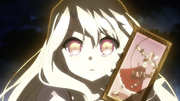Review for Fate/Kaleid Liner - Prisma Illya - Collector's Edition
Introduction
Aren’t we coming at this magical girl thing all backwards? After all, other than a brief, abortive attempt to release Sailor Moon here some fifteen years ago, magical girl shows haven’t really appealed to the UK anime fanbase, their appearances limited to the odd parody episode here or there, or parody shows like Nurse Witch Komugi. The first, genuine, magical girl show that we eventually got in the UK was Puella Magi Madoka Magica, which itself was a deconstruction and dark reinvention of the genre. It’s as if we never saw Gundam, and instead went straight to Evangelion. So releasing a more traditional take on the magical girl genre might be seen as something of a risk, to an audience that is more accustomed to the shonen action side of things.
Then again, maybe Fate/Kaleid Liner Prisma Illya is less of risk. It’s more than successful in its native Japan, soon to see a fourth season, and it’s based on an existing property. UK fans are more than well-versed in the Type Moon Universe; we’ve seen shows like Tsukihime Lunar Legend, Garden of Sinners, and the Fate franchise, Fate/Stay Night, Fate Zero, and the soon to be released Unlimited Blade Works series. Prisma Illya takes the characters from Fate/Stay Night and reinvents them in the magical girl genre, letting Illyasviel von Einzbern don the fairy outfit and wield the magic wand of a genuine magical girl. It’s not the first such reinvention of an existing franchise. We came quite close to getting Pretty Sammy in the UK once, which reinvented Tenchi Muyo as a magical girl genre show, but the release was quietly dropped by Manga Entertainment. Let’s see how Prisma Illya fares then...
Illyasviel von Einzbern is a normal schoolgirl in Japan. She lives with her brother Shirou Emiya under the care of guardians Sella and Liz while her parents work abroad, she loves watching anime, and has idle fantasies about using magic to get the boy of her dreams. And that’s where her troubles begin. For Rin Tohsaka and Luvia Edelfelt have arrived in Japan, two mages who are on a mission to recover the Class Cards, artefacts of great and mysterious magical power. Only the two rivals are more intent on arguing than working together. It’s something that their sentient wands, Kaleidosticks Magical Sapphire and Magical Ruby quickly tire of, and they leave their masters to go searching for masters more amenable. Magical Ruby senses Illya’s idle fantasies and shows up, ready to make Illya a magical girl, whether she really wants to or not. Now it’s become Illya’s mission to find the Class Cards. Surely there’s more to being a magical girl than transforming into an embarrassing outfit, and striking a cute pose!
10 episodes of Fate/Kaleid Liner Prisma Illya plus the OVA are presented across two Blu-rays from All the Anime.
Disc 1
1. She is Born! A Magical Girl!
2. Who is She?
3. Girl Meets Girl
4. We Lost
5. There Are Two Choices
6. Blank-Night’s End
7. Victory and Desertion
8. I’ll Go Back to Being a Normal Girl
Disc 2
9. I Will Finish It Here
10. Kaleidoscope
OVA 11. Sports Day
Picture
Fate/Kaleid Liner Prisma Illya gets a 1.78:1 widescreen 1080p transfer, and I have to say that this is one of the prettiest anime I have seen in quite a while. The transfer itself is hard to fault, clear and sharp throughout, with spectacular colours, and no significant sign of digital banding or compression. Silver Link are the studio behind the show, and they’ve given the Fate world a cute makeover, with familiar characters drawn in slightly more infantile ways (even Shiro looks half his age). But the animation is spectacular. Even the quieter, character moments are fluid and vibrantly animated, while the action sequences when copious magic is unleashed, is truly epic in scale. The average 1 cour show runs to 12 or 13 episodes, but Prisma Illya is only ten episodes long, so you can guess that the budget was spent where it was most needed. That’s with the exception of the OVA, which actually looks as if they ran out of money halfway through. So most of the sports in the Sports Day episode are pans over static images with voiceover.
The images in this review were kindly supplied by the distributor.
Sound
You have the choice between PCM 2.0 Stereo English and Japanese, with subtitles and a signs only track, all locked during playback. You can have any combination of the four, but you can’t watch the show without a subtitle stream at all. The subtitles are small and white, and unobtrusive. Once again I found the Japanese to be the preferable option. The actors are cast appropriately to their characters, and the performances are engaging. The English dub on the other hand... when you have main characters in Miyu and Illya as infantilised as this, having their voices sound in their late twenties/mid thirties is not a good idea. The subtitles are timed accurately and are free of typographical error.
Extras
Fate/Kaleid Liner Prisma Illya Season 1, has taken an odd journey to the UK it seems. The static menus, and the episode distribution on these discs, as well as the translated credit reels speak of Sentai authoring. But Sentai’s big yellow subs are absent, replaced with smaller, discrete white subtitles, and the audio defaulting to Japanese with English subs speaks of Hanabee authoring. But then again, the usual DTS-HD 2.0 Stereo tracks are absent, in favour of PCM 2.0 stereo, which suggests that All the Anime have tweaked the discs as well.
The discs present their content with static menus, and the episodes get translated English credit reels at the end. The only extras are on disc 2, and amount to the textless opening, 3 textless closings, and trailers for Majestic Prince, Patema Inverted, and Problem Children are Coming From Another World, Aren’t They?
Conclusion
Fate/Kaleid Liner Prisma Illya is an entertaining show, with likeable characters, an engaging story told well, briskly paced and with no dead weight. It’s funny in the right places, dramatic too, the action sequences get epic, and I have to say that it’s the most brilliantly animated show I have seen in quite a while, and I actually found its magical battles with their more prosaic animation style to be far easier on the eyes than the Monty Python-esque battles of Madoka Magica. But I can’t help feeling that we in the UK have missed the boat on the magical girl genre. We may not have seen too many of the shows, experienced the same level of fandom as other territories, but we do get the manga, and we also do experience the tropes and clichés second hand, and already sent up in parodies. We may not have seen too many magical girl shows, but I still felt as if Fate/Kaleid Liner Prisma Illya was old hat.
It is still worth watching, especially if you are acquainted with the Fate universe, as it twists that worldview to make its story work. Little touchstones and references will serve to delight fans already in the know. The obvious one is the reinvention of familiar characters (as well as the addition of some new), with Illya now living with her brother Shiro, attending school with her friends, being taught by Taiga. Her parents Irisviel and Kirutsugu work abroad, so she has a couple of maids acting as her guardians. And into her normal life drop a couple of mutually antagonistic mages. Luvia is constantly at loggerheads with Rin Tohsaka, which drives their Kaleidosticks (talking magic wands) to distraction, to the point where they quit their contracts and look for new magical girls with which to complete their mission. That mission is to find the mystical Class Cards before their magic can get out of control. The Class Cards manifest as the seven legendary heroes of the Fate Universe, albeit more as forces of nature than anything with personality.
Rin’s Magical Ruby chooses Illya to wield her, while Luvia’s Magical Sapphire picks an introverted and pragmatic girl named Miyu. Illya’s a lot more outgoing, and taken with the idea of being a magical girl, but unprepared for the dangers that ensue. There’s comedy in their early missions as they train up, but things get more serious as the harder cards challenge them, and Illya loses confidence. Of course one of the main themes in the show is of friendship, with Illya slowly drawing Miyu’s trust and affection, and that growing friendship has an effect on how the story develops. The supporting cast are quite fun too, especially among Illya’s schoolmates. Tatsuko is an absolute comic joy for one example.
But the show has its flaws. One is that it isn’t quite satisfying when it comes to character development, especially for Illya. This normal girl gets this magic wand practically drop into her lap, and she takes to magic like a duck to water. That’s impressive enough for someone who had apparently never heard of magic before. But when she masters an advanced skill like flying at her first attempt, even established mages like Rin and Luvia are shocked. But then, in the heat of a crisis, she reveals a magical ability that no one knew about, and you start asking what’s going on. Other than a cryptic comment from Illya’s mother, more of cryptic smile really, this series has no answers. I know that at the time of typing there are two more seasons out there, but there really needed to be something a little more satisfying in the first season in this regard.
The second problem is the fan service. I remember reading somewhere that the original Sailor Moon was created as a show for young girls, to inspire them in the same way as shonen shows worked for boys, give them a heroine to root for, and an example that girls too can have, work for, and achieve their ambitions in life. It came as something of a shock for the creators when they learned that they had picked up a secondary demographic of middle-aged businessmen who appreciated young girls in sailor uniforms. That shock has long since dissipated, and animators fully well know that their target demographic in Japan is male, and adult, and they make sure that even in this infantilised version of the Fate Universe, where young teenage girls look under the age of ten, there are scenes with sexual connotations.
It isn’t just the panty shots, the lingering camera angles on girls adjusting their school bloomers. We have a mother daughter shared bath bonding scenes, where mother gives daughter’s pre-pubescent boobs a maternal grope (censor Code Geass would you?). Then there’s the episode where Miyu shows up at Illya’s house, dressed in a maid uniform, which flicks Illya’s switch (she has a maid fetish), and she goes on to molest Miyu. It’s distasteful/hilarious, and I can’t quite figure out which box to tick on that one. But the fact of the matter is that the show doesn’t need it. It’s only fan service. The story would work just fine without it, and you’d be able to pick up a larger audience, including the demographic that these shows were originally intended for.
Fate/Kaleid Liner Prisma Illya is very well written and performed, it’s got phenomenal animation for the series episodes, although standards slip for the OVA, and it is admittedly a whole lot of fun to watch. But it is imperfect, and it could have been a whole lot better. Still, when you look at all the other magical girl anime on sale in the UK, it makes it an easy choice.





















































Your Opinions and Comments
Be the first to post a comment!